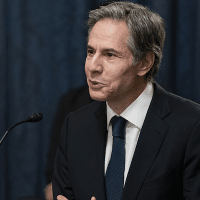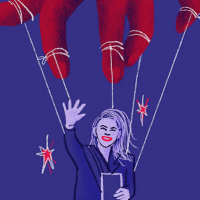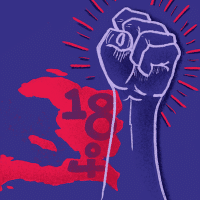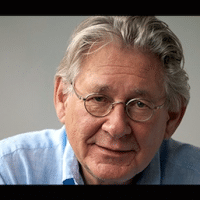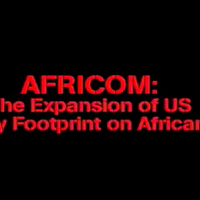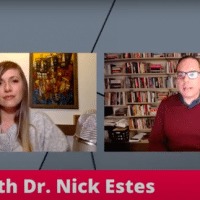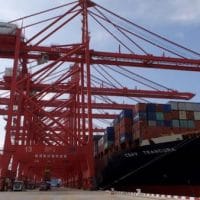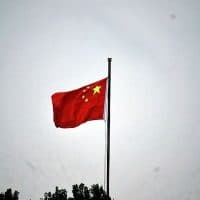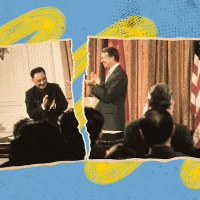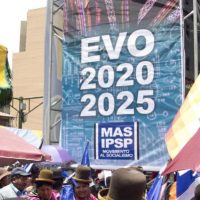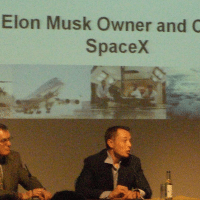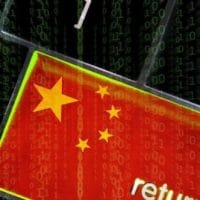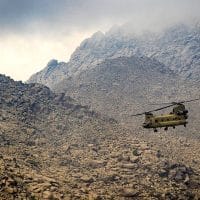-
How does Washington rob the entire world?
Against the backdrop of the recent change in the White House administration, and the absence of clear harbingers of the United States’ desire to reduce the number of armed conflicts around the world, it is worth noting that in many respects the present conflicts owe their existence to how they are pumped with American weaponry.
-
Biden’s ‘Secretary of State for regime change’ indicates no change in U.S. foreign policy
The new secretary of state served as a senior foreign policy official in the Obama administration–a period marked by increased global conflict and wars in the Middle East.
-
The country where liberty is a statue
On 6 January, the world witnessed an interesting spectacle, an assortment of what appeared to be characters from fantasy television shows taking possession of the U.S. Capitol, where the legislature sits.
-
Dossier no. 36: Twilight: The erosion of U.S. control and the multipolar future
If there was one revolution that marked the beginning of the end of the colonial epoch and that inaugurated a new worker-led civilisation, it was the Haitian Revolution of 1804. Enslaved Africans defeated the four major European powers of the day, won their freedom, and declared an independent republic.
-
Why is the Guardian promoting more Pentagon propaganda?
Recent reporting reinforces the false impression that the United States is threatened by Chinese and Russian expansionism.
-
Empire, socialism and November /w Leo Panitch
First, whether the pandemic has fundamentally altered the geopolitical balance between the U.S. and other great powers, specifically China. And second, how socialists in the U.S. should approach the November elections. For Panitch, the two issues are intimately connected.
-
RESIST AFRICOM
AFRICOM: The expansion of U.S. military interests on African soil
-
U.S. empire & decolonization
Mexie live streams with Dr. Nick Estes
-
Resisting Amazon is not futile
Amazon represents the pinnacle challenge to union organizers and socialists throughout the country. Are we in a 1919 moment, still a generation of failures away from breakthrough success? Or closer to 1935, approaching the tipping point of winning real worker power?
-
India’s farewell to ASEAN as it boards RCEP train
It comes in the specific context of the signing of the Regional Comprehensive Economic Partnership [RCEP] on Sunday—the mega free trade agreement centred on the ASEAN plus China, Japan and South Korea.
-
China is working to expand its ties to Latin America
In mid-January 2020, 800 people gathered at Mexico’s Ministry of Economy to celebrate “China Day” with a seminar on Chinese-Mexican relations.
-
From a wealthy socialite to an Israeli Govt censor, Facebook’s new “Free Speech Court” is anything but independent
Freedom of speech on the Internet is all but extinct, and on the eve of the 2020 U.S. elections, a de facto “free speech court” is going to make sure it never comes back. On Facebook at least.
-
The end of engagement
In November of 1967, just months before announcing his entrance into the 1968 presidential race, Richard Nixon outlined in Foreign Affairs what would become a north star for Washington’s orientation towards China for the next half-century.
-
Grandson of overthrown Chilean President Salvador Allende defends Venezuela against U.S. coup attempt
The grandson of Chile’s former elected socialist President Salvador Allende, who was toppled in a 1973 CIA-orchestrated military coup, has lived in Venezuela for 10 years. The Grayzone’s Ben Norton interviewed Pablo Sepúlveda Allende in Caracas.
-
CBC doubles down on erasing Palestine
Activists are determined to hold the broadcaster to account for minimizing Palestine’s national identity
-
First-ever U.S. Space Force doctrine calls for space supremacy, further militarism
U.S. Space Command was created in 1985 by U.S. President Ronald Reagan to manage the “Star Wars” program: a U.S. Cold War plan to use space supremacy to menace the Soviet Union with orbiting battle platforms, powered by nuclear reactors and loaded with space-based weaponry like hypervelocity guns, particle beams and lasers.
-
Why U.S. political scientists are arguing that Evo Morales should be the President of Bolivia
Three political scientists from the United States closely studied allegations of fraud in the Bolivian election of 2019 and found that there was no fraud. These scholars—from the University of Pennsylvania and Tulane University—looked at raw evidence from the Bolivian election authorities that had been handed over to the New York Times.
-
‘We will coup whoever we want’: Elon Musk and the overthrow of democracy in Bolivia
Protests across Bolivia began on July 27 for the restoration of democracy.
-
Canada’s membership in the Five Eyes alliance promoting conflict with China
It is time Canadians debate whether they want to be part of an intelligence group driving hostile relations with China.
-
Russiagate’s last gasp
One can read this most recent flurry of Russia, Russia, Russia paid the Taliban to kill GIs as an attempt to pre-empt the findings into Russiagate’s origins.


